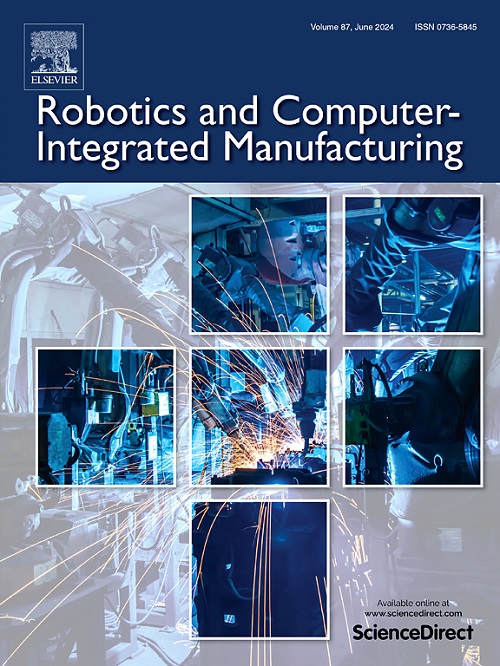Exploring tasks and challenges in human-robot collaborative systems: A review
IF 11.4
1区 计算机科学
Q1 COMPUTER SCIENCE, INTERDISCIPLINARY APPLICATIONS
引用次数: 0
Abstract
This paper presents an in-depth exploration of Human-Robot Collaborative Systems (HRCSs) within industrial environments, a dynamic field that has witnessed significant advancements due to technological innovation and the increasing integration of Artificial Intelligence (AI). As industries evolve towards more collaborative and adaptive manufacturing systems, the dynamic interaction between humans and robots becomes pivotal. This study reviews the current state of HRCSs, focusing on the challenges of task allocation and skill alignment, safety, trust, and the psychological wellbeing of human workers. We review control strategies and architectural frameworks that underpin effective human-robot interactions (HRI), emphasising the critical role of AI in enhancing decision-making processes and the adaptability of collaborative efforts. Our review sheds light on the complexities involved in designing HRCSs that are not only efficient but also cognisant of the human experience, advocating for a balanced approach that leverages the strengths of both human and robotic counterparts. We argue that research in and implications of HRCSs should extend beyond technical considerations, touching on ethical, social, and organisational dimensions, thereby contributing to the broader discourse on the future of work in the era of Industry 4.0 and future Industry 5.0.
探索人机协作系统中的任务和挑战:综述
本文对工业环境中的人机协作系统(HRCSs)进行了深入探索,这是一个动态领域,由于技术创新和人工智能(AI)的日益集成,该领域取得了重大进展。随着工业向更具协作性和适应性的制造系统发展,人与机器人之间的动态交互变得至关重要。本研究回顾了hrcs的现状,重点关注任务分配和技能校准、安全、信任和人类工人的心理健康方面的挑战。我们回顾了支持有效人机交互(HRI)的控制策略和架构框架,强调了人工智能在增强决策过程和协作努力的适应性方面的关键作用。我们的回顾揭示了设计hrcs所涉及的复杂性,这些hrcs不仅要高效,而且要认识到人类的经验,倡导一种平衡的方法,利用人类和机器人对手的优势。我们认为,hrcs的研究和影响应该超越技术考虑,触及道德、社会和组织维度,从而有助于更广泛地讨论工业4.0和未来工业5.0时代的未来工作。
本文章由计算机程序翻译,如有差异,请以英文原文为准。
求助全文
约1分钟内获得全文
求助全文
来源期刊
CiteScore
24.10
自引率
13.50%
发文量
160
审稿时长
50 days
期刊介绍:
The journal, Robotics and Computer-Integrated Manufacturing, focuses on sharing research applications that contribute to the development of new or enhanced robotics, manufacturing technologies, and innovative manufacturing strategies that are relevant to industry. Papers that combine theory and experimental validation are preferred, while review papers on current robotics and manufacturing issues are also considered. However, papers on traditional machining processes, modeling and simulation, supply chain management, and resource optimization are generally not within the scope of the journal, as there are more appropriate journals for these topics. Similarly, papers that are overly theoretical or mathematical will be directed to other suitable journals. The journal welcomes original papers in areas such as industrial robotics, human-robot collaboration in manufacturing, cloud-based manufacturing, cyber-physical production systems, big data analytics in manufacturing, smart mechatronics, machine learning, adaptive and sustainable manufacturing, and other fields involving unique manufacturing technologies.

 求助内容:
求助内容: 应助结果提醒方式:
应助结果提醒方式:


